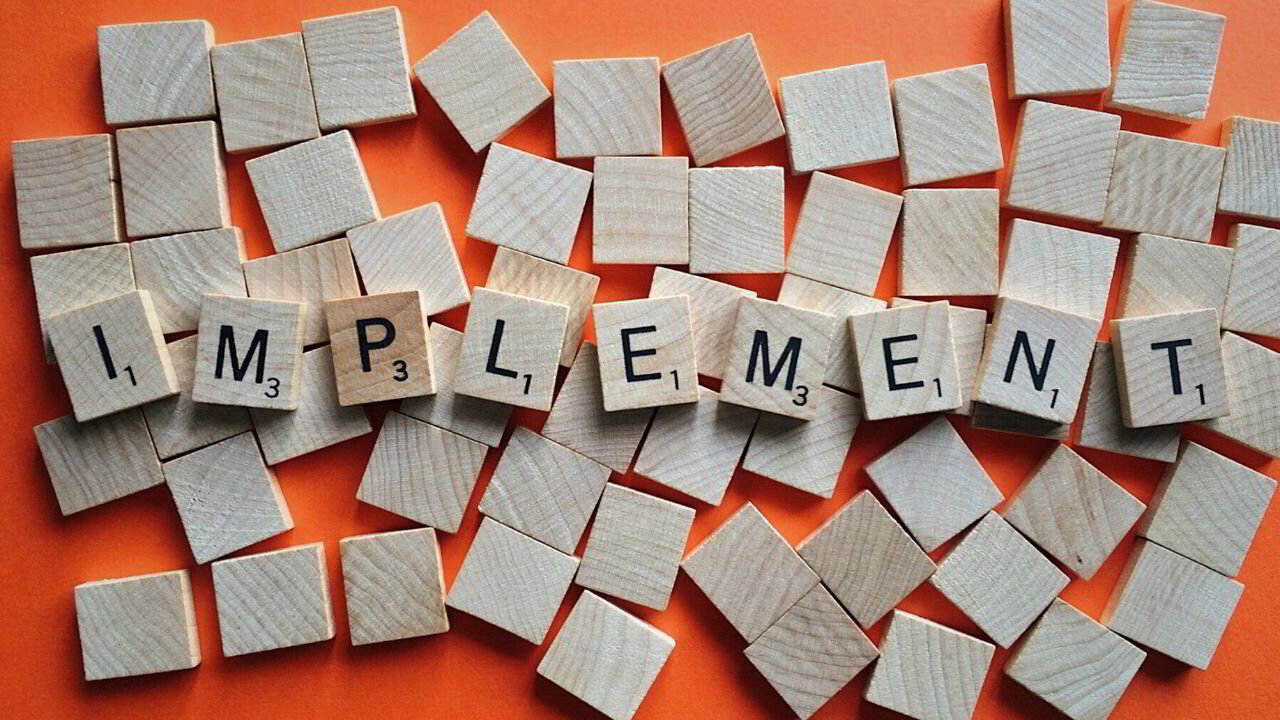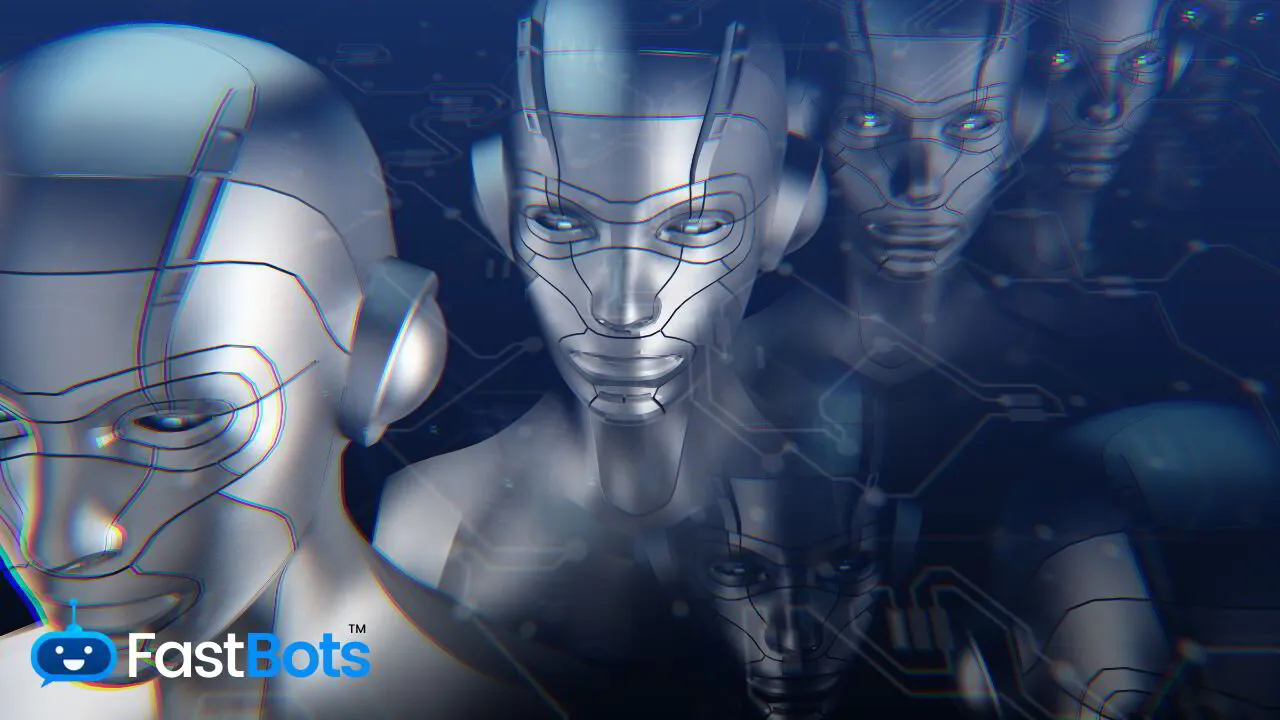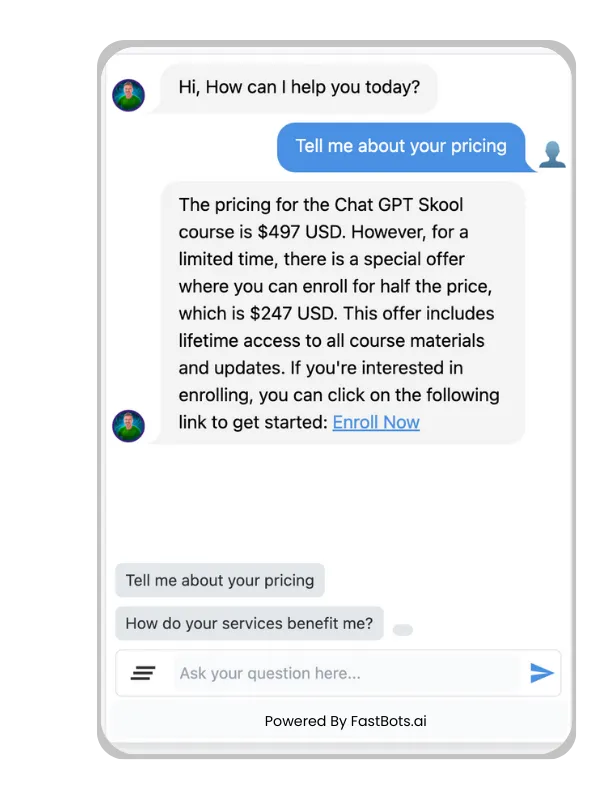In recent years, artificial intelligence (AI) has made significant advancements, and one area where it has gained considerable traction is the hospitality industry. AI chatbots are at the forefront of this innovation, providing hotels with new ways to engage and assist their guests. These software applications use natural language processing and machine learning algorithms to communicate with hotel guests, answering their queries and fulfilling requests in an efficient and timely manner.
AI-powered chatbots for hotels can dramatically improve guest experiences by offering personalised assistance during the booking process, answering frequently asked questions, and providing valuable information about the hotel's services and amenities. By automating these tasks, hotels can also streamline their operations, reduce staff workload, and enhance their overall reputation in a competitive market.
Key Takeaways
- AI chatbots are transforming the hospitality industry by providing personalised guest assistance and streamlining hotel operations.
- The key benefits of implementing AI chatbots in hotels include improving guest experiences and reducing staff workload.
- As AI technology continues to advance, we can expect further innovations and the integration of AI chatbots in hotels, shaping the future of the hospitality industry.
Understanding AI Chatbots in the Hospitality Industry
AI chatbots have become an essential tool in the hospitality industry, helping hotels improve the customer experience and streamline their operations. In essence, these chatbots are artificial intelligence-powered programmes designed to simulate human conversation and respond to customer queries that would otherwise be handled by human staff.
Hotel chatbots can be integrated into various platforms, such as websites, messaging apps, and social media. One of the main advantages of using AI chatbots in hotels is that they reduce the cost of customer engagement, as they can address common questions and concerns without the need for staff intervention. Furthermore, by providing excellent customer service, businesses in the hospitality industry can charge up to a 14% premium.
Some key characteristics and benefits of AI chatbots in the hospitality industry include:
- 24/7 availability: Chatbots can respond to customer inquiries at any time, ensuring prompt assistance for guests.
- Multilingual support: Many chatbots are capable of communicating in multiple languages, catering to a global clientele.
- Personalisation: By analysing data and learning from past interactions, chatbots can provide personalised recommendations and assistance to guests.
- Efficiency: Chatbots can handle multiple customer interactions simultaneously, which can free up staff to focus on more complex tasks.
The effectiveness of AI chatbots within the hospitality industry is significantly reliant on their ability to deliver an engaging, human-like conversational experience. To achieve this, most chatbots employ natural language processing (NLP) and machine learning (ML) techniques that help understand and interpret the user's input and adapt responses accordingly.
In conclusion, the implementation of AI chatbots in the hospitality industry offers numerous benefits that ultimately enhance the guest experience while reducing operational costs. As technology advances, it is expected that chatbots will become an even more integral part of this dynamic sector.
BEST AI CHATBOTS FOR HOTELS, GUEST HOUSES OR AIR BNB'S
In less than 5 minutes, you could have an AI chatbot fully trained on your business data assisting your Website visitors.
The Role of AI Chatbots in Hotels
AI chatbots are changing the way hotels operate by automating various tasks and enhancing guest experiences. In this section, we will explore the role of AI chatbots in hotels and how they contribute to improving hotel operations and services.
Automating hotel services
One of the most significant benefits of using AI chatbots in hotels is their capacity to automate many routine tasks that hotel staff typically handle. These tasks include handling reservations, facilitating check-ins and check-outs, providing concierge services, and assisting with general inquiries.
Integration with Property Management Systems (PMS) and booking engines allows hotel chatbots to work 24/7, providing guests with real-time assistance. The automation of standard tasks leads to the following improvements:
- Reducing human errors.
- Freeing up the hotel staff for more critical tasks.
- Faster and more efficient service for guests.
Improving the Reservation Experience
The ease of reserving a hotel room is essential to improving customer satisfaction. AI chatbots can simplify the reservation process by:
- Providing real-time availability of rooms.
- Guiding guests through the reservation process.
- Offering customization and personalisation options.
- Notifying guests of any promotions or deals during the booking process
With AI chatbots, the reservation experience becomes quicker and more convenient, resulting in higher booking rates and better guest satisfaction.
Enhancing guest communications
Effective guest communication is crucial for providing exceptional guest service. AI chatbots play a pivotal role in enhancing guest communication by:
- Providing Instant Support: Chatbots offer guests immediate assistance with any inquiries or concerns. This responsiveness leads to increased guest satisfaction by addressing their needs promptly and efficiently.
- Personalised Service: AI chatbots can gather data about guest preferences, allowing hotels to tailor their guest communication and offers accordingly.
- Multilingual Support: AI-powered chatbots can be programmed to converse in multiple languages, ensuring smoother communication with guests from different countries.
In summary, incorporating AI chatbots into hotel operations can lead to more efficient services, a streamlined reservation process, and improved guest communication. The integration of these technologies paves the way for an enhanced guest experience that keeps customers coming back for more.
Key Benefits of AI Chatbots for Hotels
Real-Time Availability and Information
AI chatbots provide hotel guests with instant responses to their inquiries, such as room availability, booking details, and amenities. This real-time information sharing not only saves time for hotel staff but also enhances the customer experience. By offering quick and accurate information, guests can make informed decisions and enjoy a seamless booking process.
- Instant Responses: AI chatbots understand guests' questions and provide immediate answers.
- Real-Time Availability: Guests can check room availability and book instantly.
- Frequent Updates: Chatbots provide updated information about hotel services and facilities.
Personalising the guest experience
AI chatbots help deliver a personalised guest experience by using data insights and natural language processing. They can understand individual preferences and tailor their responses accordingly. Personalised recommendations on dining options, local attractions, and hotel-specific services can enhance guest satisfaction and build loyalty.
- Data-driven: AI chatbots use previous interactions and user data to personalise interactions.
- Customised Recommendations: Offers tailored to guest preferences, such as restaurant suggestions or spa services.
- Seamless Communication: Chatbots can engage with guests in their preferred language, creating a more comfortable and personable experience.
Boosting Revenue through Direct Bookings and Upselling
AI chatbots can boost revenue by encouraging direct bookings and smart upselling. By offering personalised deals, chatbots can entice guests to book directly with the hotel, eliminating commission fees paid to third-party platforms. Additionally, chatbots can present guests with relevant upselling opportunities, such as room upgrades or add-on services, increasing the hotel's revenue.
- Direct Bookings: Chatbots promote personalised offers to motivate guests to book directly.
- Upselling: Chatbots present tailored upselling opportunities based on guest preferences.
- Increased Revenue: Smart upselling and direct bookings lead to higher revenue for hoteliers.
Incorporating AI chatbots into hotel operations can bring multiple benefits, including real-time availability and information sharing, personalising the guest experience, and boosting revenue through direct bookings and upselling. By adopting this technology, hoteliers can improve the customer experience, increase guest satisfaction, and build long-lasting connections with their clients.

Implementing AI Chatbots in Hotels
Choosing the Right Chatbot
When implementing AI chatbots in hotels, it is essential to find the right software that fits your hotel's needs. Many providers cater to the hospitality industry, such as ChatGPT and HiJiffy. Both can enhance your hotel's guest communication and streamline the booking process. To choose the best fit, consider:
- Features: Look for chatbots that offer a wide range of features, such as automating responses to frequently asked questions, handling room reservation inquiries, and sending personalised recommendations.
- Ease of use: A chatbot should be user-friendly for guests and hotel staff alike. A straightforward interface is crucial to ensuring seamless integration into your hotel's existing system.
- Cost: Analyse the pricing to find a chatbot solution that offers value for money while accommodating your budget.
Chatbots and Your Hotel Website
Integrating chatbots into your hotel website is essential, as they can provide real-time assistance and enhance the guest experience. AI chatbots can answer customer inquiries, handle booking requests, and even provide service suggestions during their stay.
Some key benefits chatbots offer on your hotel website include:
- Improved customer service: Chatbots can offer instant support to guests, minimising wait times and satisfying queries promptly.
- Increased bookings: By streamlining the booking process and providing rapid responses to guest questions, AI chatbots can help increase room reservations.
- Personalised marketing: Chatbots can tailor recommendations for guests based on their preferences, which can lead to upselling and a more personalised experience.
Multilingual Support
The hospitality industry often deals with clients from varied nationalities, and language barriers can negatively impact guest experiences. Implementing AI chatbots that excel at multilingual support is, therefore, crucial for international clientele. By breaking down language barriers, your hotel can offer personalised and efficient customer communication without leaving anyone feeling excluded.
By incorporating AI chatbots that support multiple languages, your hotel can:
- Welcome and engage guests from diverse backgrounds.
- Provide real-time translation services.
- Cater to a larger demographic and broaden your customer base.
- Improve guest satisfaction through effective communication, regardless of their native language.
Looking Forward: The Future of AI Chatbots in Hotels
Advancements in Chatbot Functionality
In the near future, AI chatbots for hotels are poised to become even more efficient and user-friendly, thanks to advancements in natural language processing (NLP) and machine learning (ML). Both NLP and ML allow chatbots to better understand guest inquiries and context, leading to more accurate and helpful responses.
As conversational AI continues to evolve, we can expect hotel chatbots to become more adept at handling complex requests and engaging in lifelike conversations with guests. For example, an AI-powered chatbot could assist in planning itineraries, offering personalised recommendations, and even making reservations at local attractions.
Additionally, the development of multimodal systems could enable chatbots to process and respond to various types of media, such as images, audio, and videos, further enhancing their capabilities and enabling new applications in the hospitality industry.
Emerging market trends
Among the market trends shaping the future of AI chatbots in hotels, guest messaging software and the increasing popularity of mobile devices are key drivers. The transition to digital communication channels means hotel guests expect instant, convenient access to information and services. Chatbots, with their 24/7 availability and on-demand responses, are ideally suited to meet these expectations. For instance, the Hotel Tech Report highlights the potential for chatbots to streamline guest communications and improve the overall guest experience.
Another important trend is the growing demand for personalised experiences by hotel guests. This is where AI and machine learning can truly shine. By analysing data from guest preferences, chatbots can deliver customised suggestions and offers that cater to each guest's unique needs and preferences.
In summary, the future of AI chatbots in hotels looks promising, as advancements in technology and shifting market trends pave the way for more sophisticated, efficient, and personalised guest experiences.
Frequently Asked Questions
How can AI chatbots improve the guest experience?
What features do hotel chatbots typically offer?
How do AI chatbots assist in hotel bookings?
What are the advantages of using chatbots for staff management?
Which major hotel chains have implemented AI chatbots?
What is the cost range for integrating AI chatbots into hotels?
BEST AI CHATBOTS FOR HOTELS, GUEST HOUSES OR AIR BNB'S
In less than 5 minutes, you could have an AI chatbot fully trained on your business data assisting your Website visitors.


